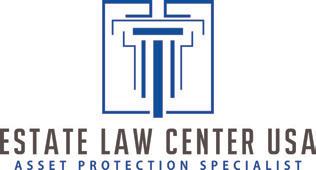




For the past decade, married couples have been benefiting from the exceptional lifetime exemption and various strategies for managing estate tax liability. From the estate planning side, this included tactics like discounting minority interests, creative enhanced trusts, and aggressive lifetime gifting to family members. Although tax regulations have become more restrictive over the past few years, many of these tactics are still viable strategies for minimizing your estate tax.
However, all married couples utilizing these strategies should remember some key points about estate tax. The first is that the unlimited marital deduction for assets merely defers the estate
tax to the surviving spouse, which means directly putting your assets in your spouse’s name could result in higher taxes and an elimination of any unused lifetime exemption if the surviving spouse does not correctly prepare tax returns.
Secondly, transferring all of your assets to your spouse does not protect the assets from probate court. Once the surviving spouse passes away, the assets are still subject to scrutinization from the probate court, and your heirs will have to hire a probate attorney to attempt to reclaim their inheritancewhether you have a Will or not.



To properly protect your assets, a trust is essential - particularly if you have properties, as there is no such thing as an automatic right of survivorship for properties in Georgia. A trust, if prepared correctly, can protect everything from your retirement accounts to your life insurance policies from additional taxes. Be sure to contact an estate planning attorney to get their advice on how you can best protect what’s most important to you.

Brought to You by - Soraya Kenney, American Commerce Bank


Q. As my kids get their first jobs and start thinking about college, how can I help them be prepared to responsibly manage their finances?
A. According to a recent survey from the National Financial Educators Council, 75% of students are confused about being responsible with their money. They struggle with how to create a budget, how to balance saving and spending and how to keep track of their funds. Most of the students surveyed received most of their financial education at home. As their parents, there are some simple steps you can take to help your kids be in the 25% who feel ready to manage their own finances.
Q. What is a good first step in this education process?

A. Creating a budget is a good place to start. Help your student set up a spreadsheet or download a budgeting app and have them begin to enter their information. If they have a job, their paycheck is a good place to start. But what if they do not have a job or are heading off to college and do not plan to work for the first few months? In that case, begin with the funds they currently have in their savings account or the weekly/monthly allowance you will give them.
Q. What are the items we should include in their budget?
A. This is the time to discuss needs and wants. They may need a pair of sneakers for daily wear but want the latest superstar-endorsed brand. You may agree to purchase the basic brand but decide the additional cost for the high-end pair must come out of their budget. In addition, your student should include expenses for entertainment and meals out with friends. Do not forget to have them include funds for emergencies (or unexpected opportunities they do not want to miss). Finally, be sure to encourage them to designate a portion of their income or allowance to a cause that is important to them.
Q. What about credit and debit cards?

A. There are significant differences between debit cards and credit cards. Make sure your student understands that their debit card is the equivalent of cash and as soon as they use their debit card, that money comes out of their checking account. Using a credit card does not immediately take the money out of their checking account but they still need to be cognizant of how and when they are using it to avoid a big bill that they cannot pay in full at the end of the month.
Q. This all seems involved. Are there any outside resources that can help with this education process?
A. Yes, right here at American Commerce Bank. We have experienced and committed bankers who will gladly teach a financial literacy class to school groups, scout troops, sports teams or any group who might benefit from our experience. Call Soraya Kenney at 470.422.1200 to schedule your group.














